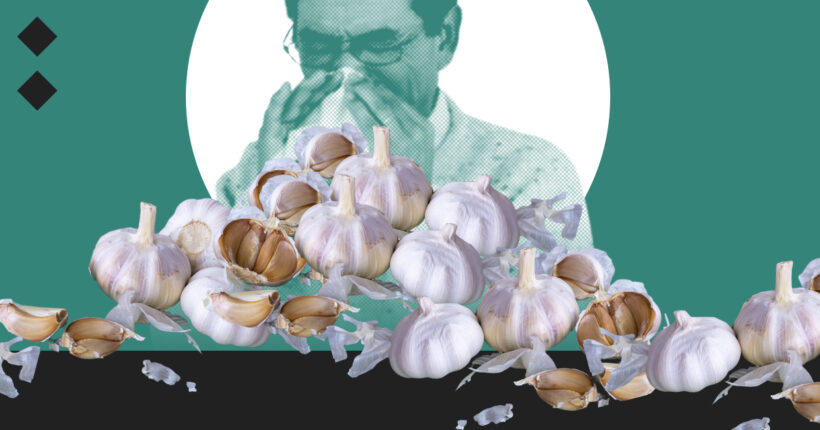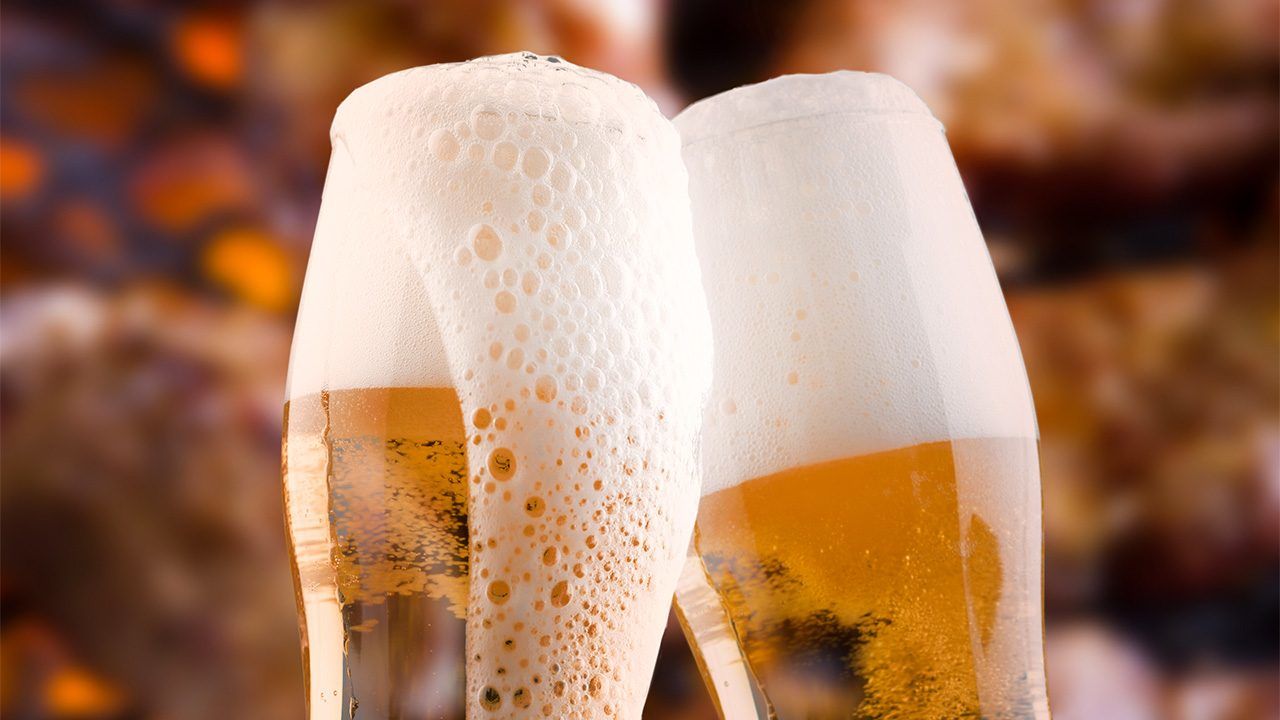
What is the problem?
Almost a third of Ukrainians do not trust doctors. In particular, according to the Social Monitoring Center, in 2020, 31% of respondents did not trust doctors, 61.1% trusted them, and the rest could not answer.
Earlier this year, KIIS conducted a survey on trust in family doctors, revealing that in most areas, the level of trust in them is 60%+. But as of March of 2023, only doctors in the Kherson region had 100 % trust of patients.

Infographics of the Kyiv International Institute of Sociology (KIIS).
At the same time, many Ukrainians tend to trust grandmothers and other relatives who advise "time-tested" folk methods. The problem is that these methods often do not have scientific confirmation and do not contribute to recovery and sometimes even harm.
What is the solution?
The solution lies in knowledge, particularly regarding the means of treatment offered by evidence-based medicine.
How does it work?
Bad advice from the team
Rubryka's team conducted an experiment, the results of which we are happy to share with our readers. Some of our team were asked about the advice they received from loved ones during various illnesses and whether these methods worked.
Then, they were discussed with family doctor Daryna Dmytriyevska, who works on the principles of evidence-based medicine.

Family doctor Daryna Dmytriyevska. Photo from the personal archive of Daryna Dmytriyevska
Bad advice #1. Use garlic juice for a runny nose
Our editor, Maria Smyk, who was "lucky" to get SARS three times this season, received such a strong recommendation from her grandmother. She did not dare to use it.

Garlic juice in the nose is NOT a solution. Illustrative photo from the Pixabay service
The doctor's answer: "This is not a very good idea because it can irritate the mucous membrane. An infection can occur against the background of this irritated mucous membrane. There is no proven effectiveness of sprinkling garlic juice in the nose against SARS."
This is one of the practices that creates the effect that we are doing something, but it is ineffective. There is no specific treatment for SARS, reminds Dmytriyevska.
Bad advice #2. "Genghis Khan cleanse"
An acquaintance of our eco-journalist, Victoria Gubareva, mixes kefir with garlic (a lot of garlic) and drinks it, as it allegedly thins blood.

Drinking kefir with a lot of garlic to "cleanse" the body is NOT a solution. Illustrative photo from the Pixabay service
The doctor's answer: "Honestly, this is the first time I have heard of such a thing. I suspect this "cleansing" of the body will occur due to the activation of the intestines, causing diarrhea. It will irritate the gut, but there is nothing useful about it. In this case, a person will most likely lose some useful substances normally found in the intestines."
Dmytriyevska adds: "Why should a person thin the blood? If there are problems with blood clots, then these are quite serious conditions that must be corrected with drugs and under the control of tests. Kefir and garlic are useless here."
Bad advice #3. Hot beer with honey for cough and sore throat
Almost everyone on Rubryka's team received such advice. Although the drink has a "very amateurish" taste, it is unlikely to help.

Hot beer with honey for cough and sore throat is NOT the solution. Illustrative photo from the website drink.co.ua
The doctor's answer: "If someone likes such a drink, then please. But not for treating ARVI."
She explains that drinking hot beer irritates the mucous membrane and brings blood to your upper body. Then, in some very, very early stages of ARVI (at the same time, it should be remembered that there are more than 200 of these viruses), you will feel relief. But in the same way, when you exercise at the first general symptoms of ARVI — doing light physical exercises or going for a light run — you will also warm up your body and activate blood circulation. In some cases, you can help your immunity and improve your well-being.
"Moderate sports, movement, and drinking a lot are general recommendations for treating ARVI. "Beer with honey is a way to increase blood circulation, which is definitely not healthy because there is no safe dose of alcohol," says Dmytriyevska.
The human body copes with most viruses on its own, and we don't even notice it. With some ARVI, we feel only slight discomfort, and then we feel better. If you drink beer with honey at such a moment, you may think it helped. This is how cognitive distortion works, explains the family doctor. If it is a stronger virus and your body is more vulnerable, you will get sick.
Bad advice #4. Rubbing moonshine to bring down a fever
Rubryka's journalist, Anna Steblovska, remembered such manipulations from her childhood but did not remember whether it helped.
The doctor's answer: "You don't need moonshine. Alcohol will irritate the skin, thus dilating blood vessels. Theoretically, this can slightly increase the heat output, and also, theoretically, the temperature will decrease. But there is no guaranteed effect, and there is skin irritation."
At the same time, Dmytriyevska advises: "It is better if you have a really high fever and antipyretics with proven effectiveness do not help enough — rub yourself with a cold towel or shower. This is proven to help. But don't hang around, and don't heat yourself up even more."

At a very high fever, wiping with a towel soaked in cold water is an effective solution. Illustrative photo from the Pixabay service
Bad advice #5. Gargling with beetroot juice for a sore throat
An epic story happened to Rubryka's photographer Mykola Tymchenko in his youth. He had a sore throat, and a neighbor who worked as an accountant at a vitamin factory advised him to gargle with beetroot juice. So he did. Then the district doctor came, looked at this throat, and said: "Call an ambulance."
"The ambulance brought me to the hospital, where they looked in my mouth and said: 'He has diphtheria. Take him to another hospital.' I was very scared because I thought I was going to die now. In short, this juice stained my throat. It didn't help but only scared me, and I was driven back and forth around Kyiv for two hours. This is such a sad story," Tymchenko recalls now with a laugh.

Gargling for a sore throat or diphtheria with beetroot juice is NOT a solution. Illustrative photo from the Pixabay service
The doctor's answer: "This story shows us several layers. First, even doctors can't always distinguish sore throat from diphtheria in the initial stages because they look alike. It must be an experienced doctor who has seen both. For this, a smear is specially taken because it is really possible to miss it, and a person can die because the treatment was prescribed untimely. We have had outbreaks of this disease in different years, and it is necessary to vaccinate against it."
Dmytriyevska continues: "If it is not diphtheria but a sore throat, then beetroot juice would definitely not help here. Antibiotics help in such a case."
Why do they think that such methods help?
"Often, when a person has, for example, a fever, general symptoms of malaise, sore throat, and white dots on the tonsils, in most cases, it is not purulent sore throat at all, but ARVI," the doctor continues.
"In this case, rinsing with anything, even water, will help. A person will simply rinse these layers on the tonsils. You don't need to do it with beetroot juice, alcohol, or anything else that is sometimes added to it. There is no need to torture yourself with beetroot juice; just any rinse will help. A person recovers from ARVI in a few days," says Dmytriyevska
Is it really a solution?
Why do people choose traditional medicine?
Historically, treatment began with traditional medicine, and people tend to believe in the "wisdom of the ages."
"There is a very limited number of practices and means, in particular in phytotherapy, which have a certain effect. Mostly, this effect is very weak, but it was later used to create part of evidence-based medicine," Dmytriyevska refutes the myth about the omnipotence of folk remedies.
Traditional medicine actually has a more psychological effect. It works like a placebo, explains the doctor. Being treated this way, a person seems to receive a dose of psychotherapy.
The doctor Dmitrievska emphasizes: "Of course, most traditional medicine practices are unproven and ineffective. They are built on magical thinking, the need to do at least something when you feel bad, and distrust of official medicine. Of course, I do not prescribe, use, or recommend such a thing."
But not only Ukrainians are "in love" with such medicine, but also residents of other countries. For example, there are many traditional medicine offices in Germany.
There are many reasons for this, thinks Dmytriyevska: "The main reason, perhaps, is that people cannot come to terms with the fact that most of our conditions statistically resolve on their own over some time without specific treatment. Some of our symptoms, especially the long ones, are primarily caused by fatigue, overload, stress, anxiety, and depression."
She gives an example: a person can turn to an evidence-based doctor who treats according to official protocols. They will more likely recommend adjusting the daily routine, not working so much, and eliminating stress.
But it is very difficult to change the way of life. It is impossible to exclude stress for Ukrainians nowadays. Everyone wants a magic pill to turn our "bad" into "great." If evidence-based medicine does not promise this, some people prefer to listen to folk methods that do not have a scientific basis.
How to avoid the temptation to resort to folk medicine?
"Beets should be in borscht, and garlic should be eaten with borscht and not otherwise"
If you have a cold and your hand reaches for garlic (or some other folk remedy), come to your senses: it is better to drink water or tea, make yourself the most comfortable environment, allow yourself to sleep, eat something tasty, do light sports or just go for a walk if the condition allows, recommends Dmytriyevska.
"Don't get caught up in all those folk remedies. Beets should be in the borscht, and garlic should be eaten with the borscht, not in various other places of application. There is absolutely no need to additionally torture yourself with such treatment," the family doctor recommends.
And, of course, with complex conditions, you should consult doctors who treat you with evidence-based methods.







